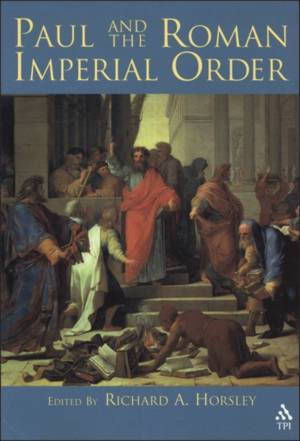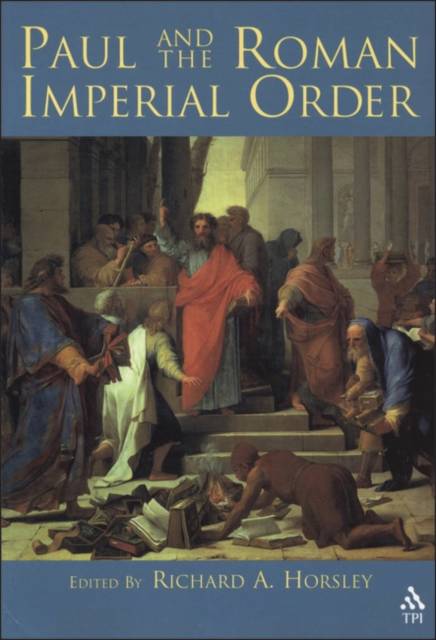
- Retrait gratuit dans votre magasin Club
- 7.000.000 titres dans notre catalogue
- Payer en toute sécurité
- Toujours un magasin près de chez vous
- Retrait gratuit dans votre magasin Club
- 7.000.0000 titres dans notre catalogue
- Payer en toute sécurité
- Toujours un magasin près de chez vous
Description
The five articles and Simon Price's response at the core of this book were originally papers delivered in a session of the Paul and Politics Group at the 2000 SBL Annual Meeting. There are a number of special features that make this a special combination of articles on Paul in what is turning out to be a highly suggestive new perspective and context, the ancient Roman imperial order. First, these articles are all informed by and respond in some way to the ground-breaking work of Simon Price on the Roman imperial cult in Greek cities, some of the very cities in which Paul carried out his mission. Invited as a special guest of the SBL for the 2000 Annual Meeting, Price was the respondent to these papers and interaction with him has aided the authors in their revisions. The articles bring a rich variety of fresh perspectives to issues of the relation of Paul and the Roman imperial order, including postcolonial theory, political-anthropological theory (James C. Scott), postcolonial theory, and feminist theory, along with the new perspective on the imperial cult represented by Price. This collection of articles thus stands at the cutting edge of new scholarship on Paul's mission and letters in his political and cultural context. Contributors for this book include Robert Jewett, Abraham Smith, Neil Elliott, Rollin A. Ramsaran, Efrain Agosto, Erik Heen, Jennifer Wright Knust, and Simon R.F. Price. Richard A. Horsley is Distinguished Professor of Liberal Arts and the Study of Religion at the University of Massachusetts, Boston, and the author of Paul and Politics: Ekklesia, Israel, Imperium, Interpretation and Paul and Empire: Religion and Power in Roman Imperial Society.
Spécifications
Parties prenantes
- Auteur(s) :
- Editeur:
Contenu
- Nombre de pages :
- 224
- Langue:
- Anglais
Caractéristiques
- EAN:
- 9781563384219
- Date de parution :
- 01-01-04
- Format:
- Livre broché
- Format numérique:
- Trade paperback (VS)
- Dimensions :
- 156 mm x 230 mm
- Poids :
- 344 g

Les avis
Nous publions uniquement les avis qui respectent les conditions requises. Consultez nos conditions pour les avis.






